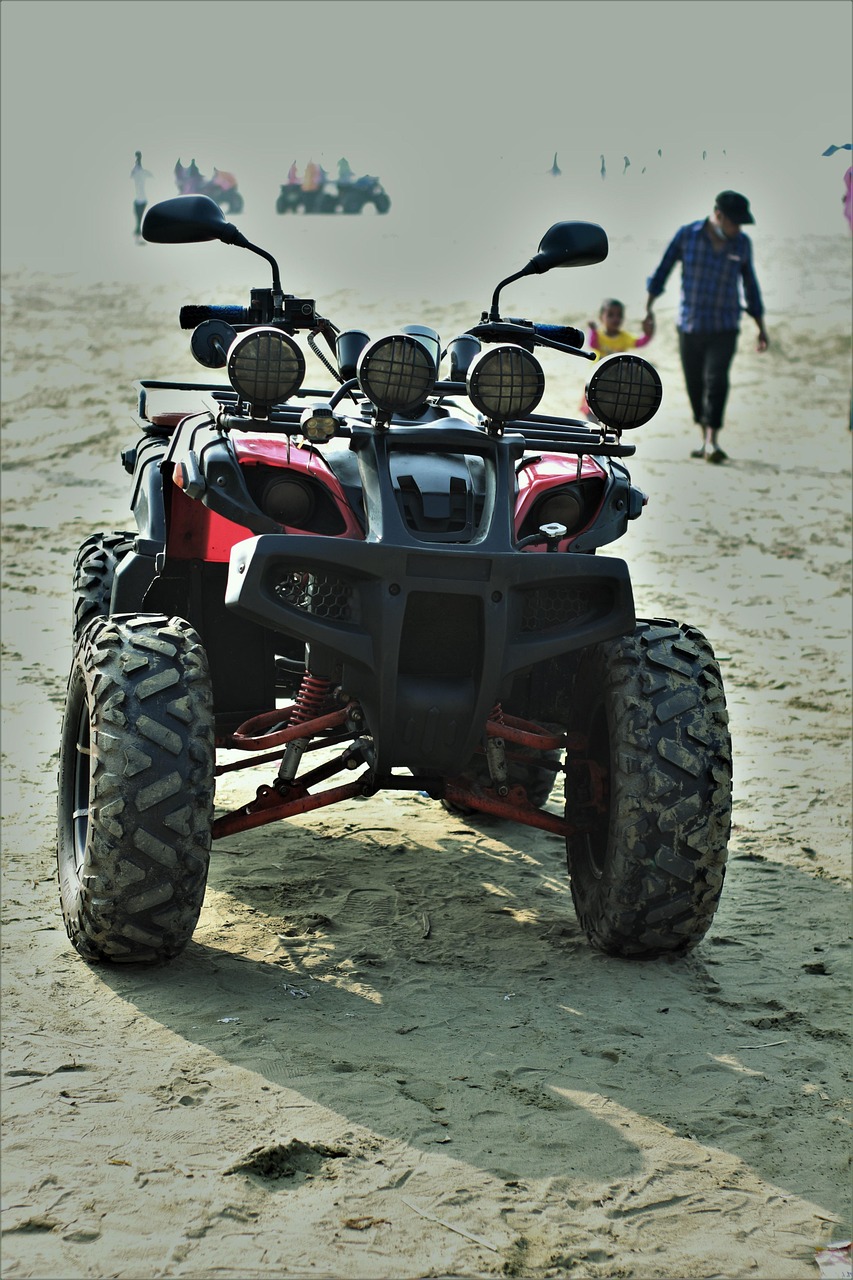




Claim for an ATV Accident at Work
5 Important Steps To Take After An Accident
All Terrain Vehicles (ATVs) are increasingly being used in workplaces which raises a risk of injuries, so here’s how to claim for an ATV accident at work if this has happened to you. There are also 5 important steps you should know to take if you’ve suffered from an injury.
While not all work injuries may result in compensation, you may be entitled to start a personal injury claim if you have been injured due to employer negligence, poor maintenance or a lack of training.
The Health and Safety Executive (HSE) recently reported an incident where a farmer in Gloucestershire has been fined after an employee died in a quad bike accident. The HSE investigation found the overloaded quad bike had overturned.
The farmer was found to have failed to implement pre-use checks, provide suitable equipment, as well as to implement a system to fill the spray tank, provide proper training and assessment of risks.
If you have been hurt during an accident with an ATV at work, contact our team at Jefferies Claims if you want to find out more about a personal injury claim for compensation.
What Is an ATV and Where Are They Used?
An All-Terrain Vehicle (ATV) is a motorised off-road vehicle which is designed to handle a wide range of terrains. They are mainly used in the following industries:
- Farming and agriculture
- Forestry and land management
- Construction and utility work
- Search and rescue operations
Due to their size and speed, ATVs can be dangerous if improperly maintained or driven without appropriate training and safety gear.
When Can You Make a Claim for an ATV Accident at Work?
You may be able to claim compensation if your injury resulted from someone else’s negligence. This can typically include:
Lack of Proper Training
Employers are legally required to ensure that workers are properly trained to operate ATVs.
Inadequate Safety Gear
This is if your employer failed to provide necessary personal protective equipment (PPE), such as helmets, boots, and gloves.
Poor Vehicle Maintenance
ATVs must be regularly inspected and maintained. If a malfunction caused by neglect led to an accident, this could be grounds for a personal injury claim.
Unsafe Work Environment
Obstacles, steep inclines, or unstable ground can make ATV use dangerous. Employers are required to assess risks and provide a safe environment for ATV use in the workplace.
It is important to note that there is a time limit in which to file a claim. You generally have three years from the date of the accident to file a personal injury claim. Exceptions may apply if the injured person lacks mental capacity or is under 18.
Common Injuries from ATV Accidents
ATV accidents at work may cause various serious injuries. Some of the most common include:
Head Injuries
Without a helmet, an ATV crash can easily cause a traumatic brain injury (TBI), concussion, or skull fracture.
Spinal Injuries
Being thrown from an ATV or pinned underneath one, may cause serious spinal damage.
Broken Bones
The force of an impact can easily result in breaks and fractures to the arms, legs, ribs, or pelvis.
Crush Injuries
If an ATV overturns, the rider may suffer crushing injuries to the chest, limbs, or abdomen.
Soft Tissue Injuries
Strains, sprains, and torn ligaments are common, especially in the shoulders, knees, and back.
Internal Injuries
Blunt force trauma can lead to internal bleeding and damage to organs such as the liver or spleen.
5 Important Steps to Take After an ATV Accident at Work
If you’ve been involved in an ATV accident in the workplace, acting promptly can significantly improve your chances of receiving fair compensation. Here are five important steps to take:
- Get Medical Help Immediately
Your health should always be your first priority. Even if your injuries appear minor, seek medical attention as soon as possible. A detailed medical report ensures proper care but it will also serve as crucial evidence for your personal injury claim.
- Report the Incident to Your Employer
Make sure the accident is formally reported and recorded in the company’s accident book. This is important as it creates an official record, which will be vital to your claim.
- Collect Evidence at the Scene
If possible, take photographs at the scene of the accident, any visible injuries, and the ATV involved. If there were any witnesses, try to get their statements and contact details.
- Details Everything Related to Your Injury
Keep all receipts, medical costs, travel expenses, and records of any time taken off work. These details will help your solicitor to calculate your total losses and build a stronger case.
- Seek Legal Advice from a Personal Injury Solicitor
Contact a solicitor who specialises in ATV or workplace accident claims. An expert will guide you through the claims process and improve your chances of securing maximum compensation.
How To Start a Personal Injury Claim in the UK
To start a personal injury claim for an ATV accident at work, your consultation with your personal injury lawyer will establish whether you have a valid claim and how to move forward.
This will be based on:
- Negligence or breach of duty by your employer
- Evidence of your injury
- Time elapsed since the accident
Compensation usually includes pain and suffering and financial losses, such as lost wages, travel and medical expenses.
Most claims are handled on a No Win No Fee basis. This means you won’t pay any legal fees unless your claim is successful.
We work with lawyers who operate on a ‘No Win, No Fee’ basis and at Jefferies Claims, we can guide you through the process.
To discuss your potential claim in confidence, contact our team at Jefferies Claims on 0333 358 3034. Alternatively, complete our online contact form to arrange an initial, no-obligation consultation with one of our friendly team.
